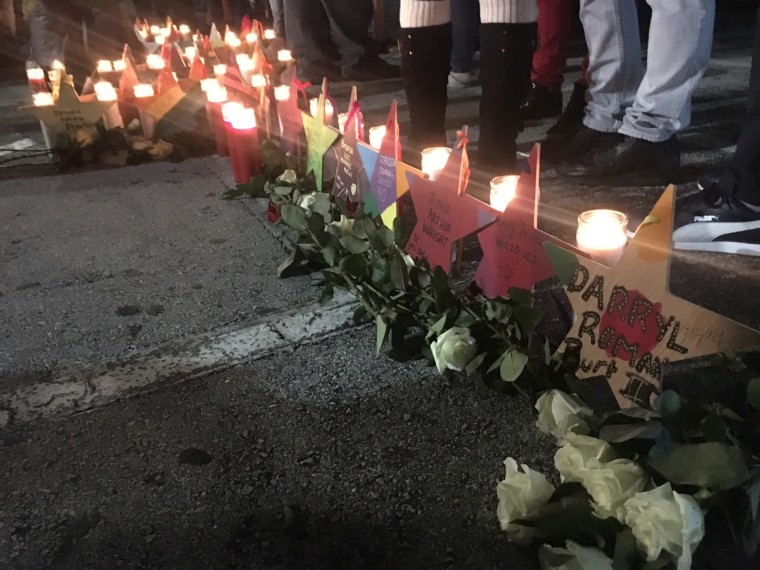Relatives of three people killed in the June shooting attack at an Orlando nightclub sued Facebook, Twitter, and Google's YouTube Monday, accusing the social media sites of recklessly allowing ISIS to use them for recruiting terrorists.
"Social media is at the heart of much of this terrorist activity, and something has to be done," their lawyer, Keith Altman of Southfield, Michigan, told NBC News.
Without them, "the explosive growth of ISIS over the last few years into the most feared terrorist group in the world would not have been possible," Altman said.
The lawsuit was filed in federal court by family members of Tevin Crosby, Javier Jorge-Reyes, and Juan Guerrero. They were among 49 people killed when Omar Mateen opened fire inside Orlando's pulse nightclub on June 12. Mateen was killed by responding police.
The relatives say the social media companies have for years provided ISIS with accounts to use their networks "as a tool for spreading extremist propaganda, raising funds, and attracting new recruits."
The companies are well aware of the problem, the lawsuit says, but have done little to stop it.
Their complaint, filed in federal court in Michigan where some of the family members live, quotes Twitter founder Biz Stone says saying "if you want to create a platform that allows for the freedom of expression for hundreds of millions of people around the world, you really have to take the good with the bad."
They claim the companies could easily block known ISIS recruiters from simply opening new accounts after they are discovered and shut down. It also says the companies place ads on the ISIS postings, profiting from terrorist messages.
In a written statement emailed to NBC News, a Facebook spokesperson said the company is "committed to providing a service where people feel safe when using Facebook."
"Our Community Standards make clear that there is no place on Facebook for groups that engage in terrorist activity or for content that expresses support for such activity, and we take swift action to remove this content when it’s reported to us. We sympathize with the victims and their families," the statement continued.
Twitter declined to provide a comment on this latest case, and Google did not immediately respond to a request for comment.
Related: New Document Sheds Light on Role of K9s During Pulse Attack
The FBI has said that Mateen was radicalized in part through the Internet, and he pledged allegiance to ISIS during a lull in the shooting spree.
But investigators have said he also praised other terror groups, claimed his had family connections to al Qaeda, and said he was a member of Hezbollah, a bitter enemy of ISIS.
Altman filed a similar lawsuit in June on behalf of the family of an American student killed during the November 2015 terror attack in Paris.
But in January, a lawsuit against Twitter brought the widow of an American killed in Jordan in an ISIS attack on a police training center was dismissed. The judge said such lawsuits are barred by a federal law, the Communications Decency Act, which provides that web sites cannot be held legally responsible for the content posted by their users.
Legal experts said the latest lawsuit will face a similar hurdle.
When questioned about this hurdle, Altman said the advertisements social media companies display along with the content on their platforms could be "the way of looking at it that could overcome" the Communications Decency Act.
"They specifically decide what ad to show based on what they know about me, the viewer, and what I’m looking at, and when they do that, they’re no longer just passing through," Altman said.
“It’s our position that when you do this, this is no longer covered by the Communications Decency Act, because they are now information content providers," he added.
In response to the earlier lawsuits, the companies said their rules make clear that violent threats and the promotion of terrorism deserve no place on their platforms and said the suits were without merit.

